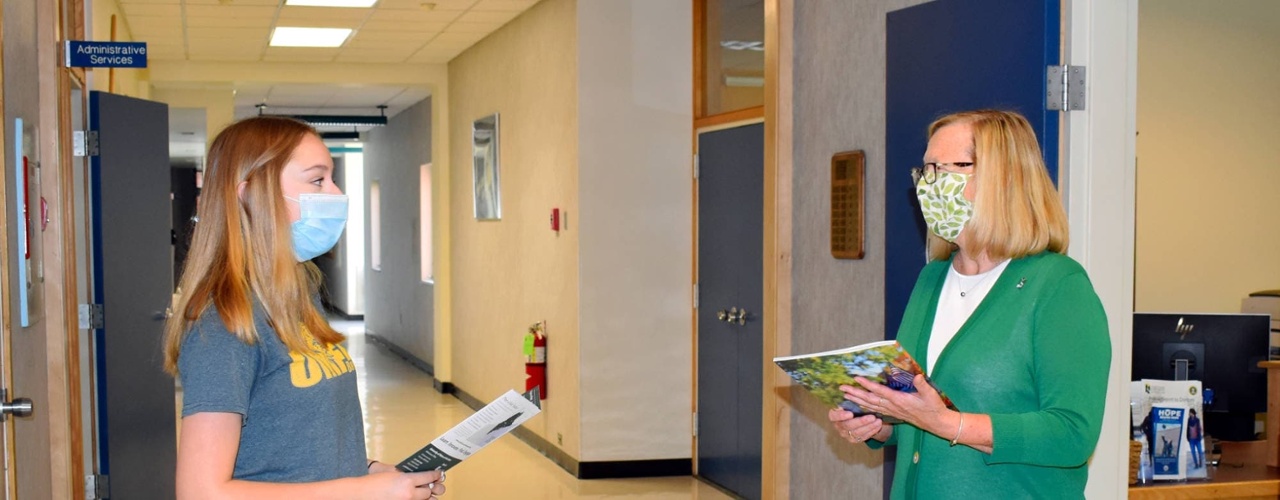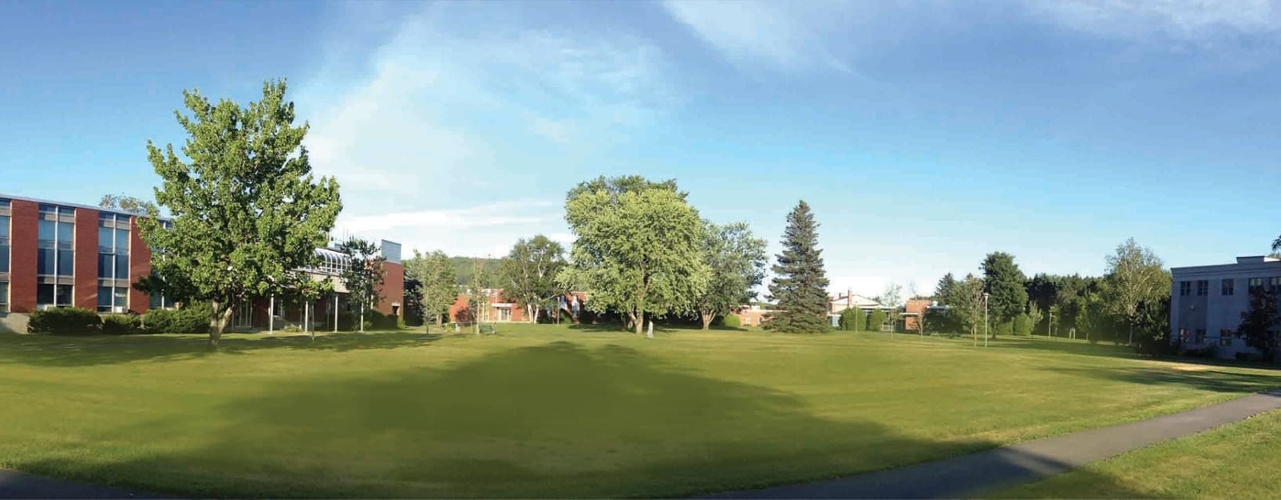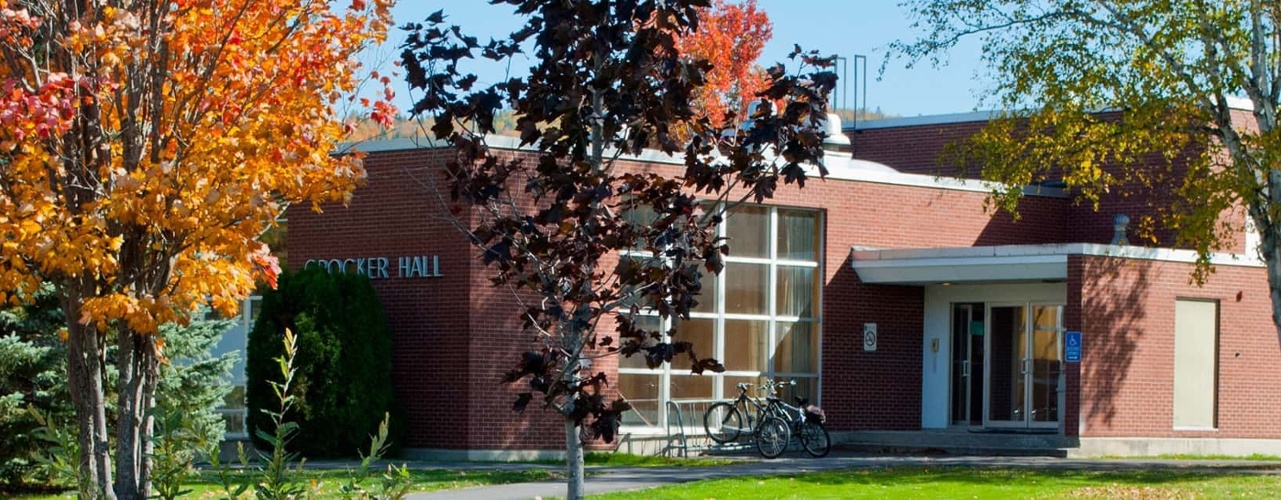
Latest News
UMFK, MSAD #27 CELEBRATE FIRST FIRING OF BIOMASS PLANT
February 28, 2014
Note: this is an archived news release. As such, the information provided may no longer apply.
NR14019
The University of Maine at Fort Kent, the Maine School Administrative District #27, along with their friends and benefactors, cut a ribbon today, marking a significant milestone in the construction and operation of the $5.5 million Pleasant Street Academy Biomass Project.
Today's ceremony/ribbon-cutting marked the inaugural firing of project's twin 4 million BTU boilers, located within the former Fort Kent Armory. The project is expected to save UMFK and MSAD#27 millions in energy costs in the next decade.
“With this project milestone, UMFK has taken a big step toward the conversion of our entire campus from foreign oil to local biomass alternative fuel sources for heat and hot water needs. This project will spur northern Maine's growing wood pellet and biomass fuel industry by consuming more than 1,300 tons of wood biomass annually. It also will serve as a working environmental education example of local, renewable fuel replacing imported, non-renewal oil. It will dramatically reduce the University's annual energy costs,” said UMFK President Wilson G. Hess.
The project is largely funded through a $2.7 million U.S. Department of Agriculture grant.
“I am pleased USDA Rural Development can provide significant funding for this biomass project, with a total of $2.7 million invested through a High Energy Cost Grant. Expanding the biobased economy and renewable energy projects is one of three major emphasis areas identified by USDA Rural Development, said Virginia Manuel, USDA Rural Development state director. “This project will save the University of Maine at Fort Kent and Maine School Administrative District 27 over $4 million in energy costs in the next decade while supporting biomass-related jobs and Maine's growing biomass industry.”
“This project also supports the USDA Rural Development Maine Great Region which seeks to support community economic development, create economic growth and opportunity through expanding the biobased economy, and encourage local and regional food systems in the three-county region of Aroostook, Piscataquis, and Washington,” Director Manuel added.
The biomass project made fast tracks following its mid-June 2013 groundbreaking. Initial staging for the project took place during the summer months and work began, in earnest, last fall. Trenching and the installation of 8-inch underground piping were completed. Construction crews moved expeditiously to complete that element of the project before the ground froze.
The underground piping will transport hot water (195 degrees) to ten University buildings and four nearby buildings at MSAD #27's Community High School, Valley Rivers Middle School, and Fort Kent Elementary School, providing each with space heating and domestic hot water service.
In 2011, UMFK and MSAD #27 partnered together, in an extension of their joint College Community Project, to apply for, and develop, the environmentally-friendly initiative.
The district heating plant will:
· lower fuel costs by up to 80 percent (compared with #2 fuel oil)
· stabilize fuel prices
· stimulate the local economy
· enhance environmental sustainability
· strengthen national security by reducing dependence on foreign oil
· reduce maintenance costs by displacing eight, oil-fired boilers, with a single state-of-the-art boiler with proven success in Europe
· help UMFK meet its climate neutrality obligations under the American College and University Presidents Climate Commitment
· complement collaborative efforts between UMFK and MSAD #27
The biomass boiler will boost the local economy by: dramatically reducing costs; supporting local landowners and natural resources-based workers; keeping dollars spent on energy in the local economy; stabilizing the heating portion of the institutions' budgets; retaining jobs through costs savings; and, creating new jobs.





